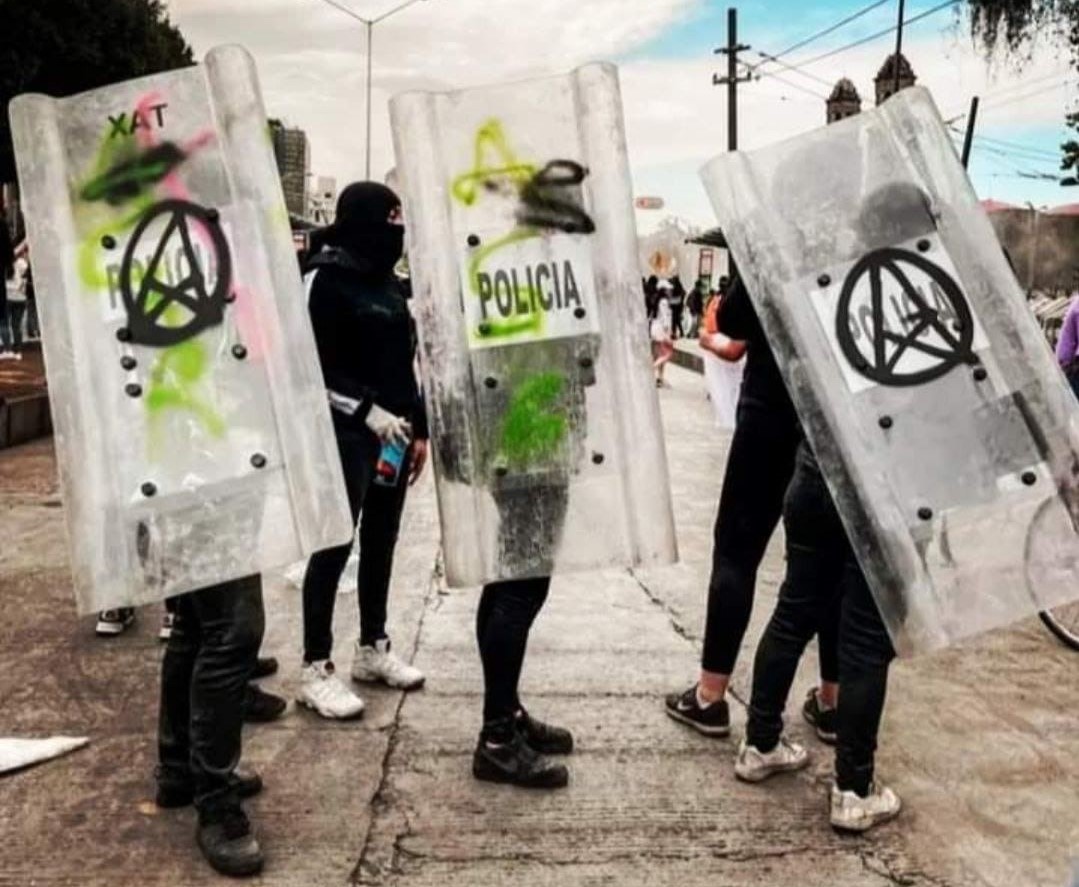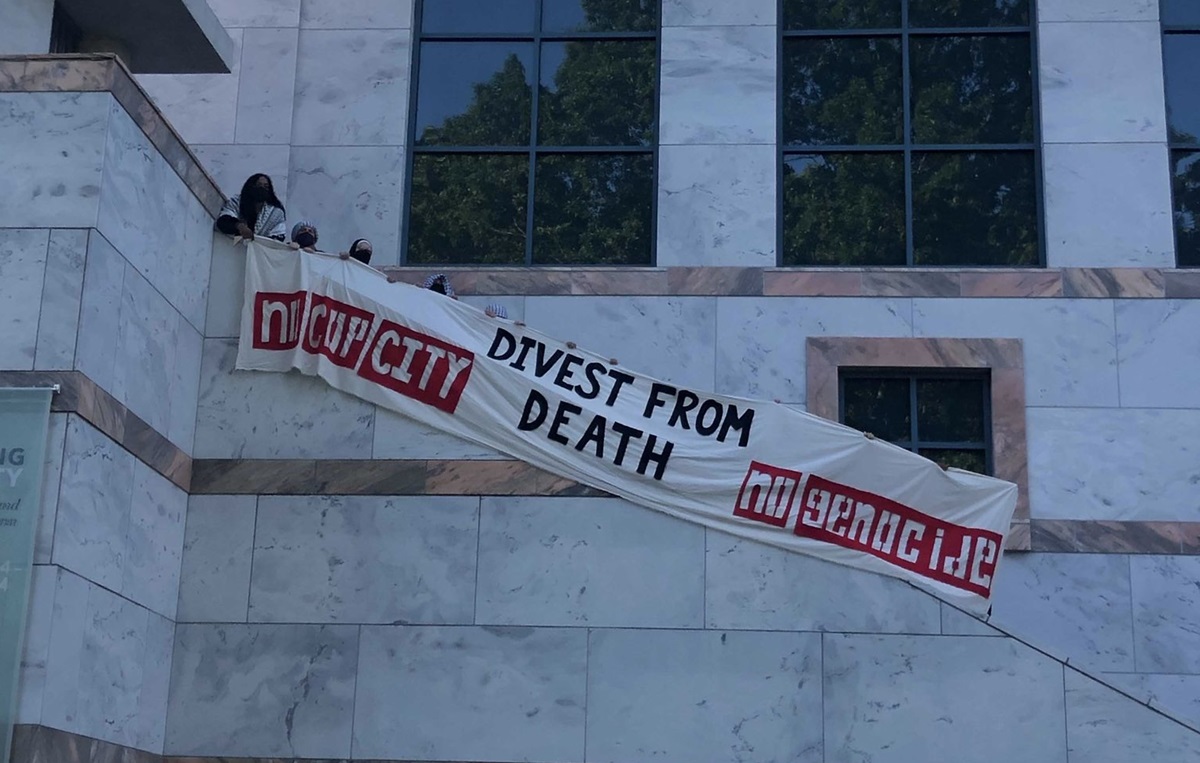Filed under: Analysis, Anarchist Movement, Critique, Featured, Health Care, Labor, US

Critical report back and analysis from members of the Black Rose Anarchist Federation on the recent Health Autonomy Conference that took place in Durham, North Carolina in May of 2023.
In May of 2023 several Black Rose / Rosa Negra (BRRN) Militants organizing in the healthcare sector attended the Health Autonomy Convergence (HAC) in Durham, North Carolina. This is their collective reflection on and analysis of the event and of the prospects for radical labor organizing in healthcare more generally.
By Healthcare Worker Members of BRRN Labor Committee
Last May, 200 anti-authoritarian healthcare workers gathered together in Durham, North Carolina for the first Health Autonomy Convergence. With many more healthcare workers wanting to attend but unable to, because capacity was reached within a day of registration opening, this event speaks to a huge desire for radical political approaches among healthcare workers. This is unsurprising, given what we have been through since the beginning of the pandemic, and the failures of the racist capitalist system we see everyday as we try to provide care in this broken world.
The fact that this was a conference specifically for healthcare workers, rather than a gathering to discuss healthcare abstractly or theoretically, was an important feature. We believe it is critical to encourage an organizing orientation among radicals, which means shifting the focus from the WHAT (like the issue of healthcare), to the WHO (like healthcare workers). As healthcare workers, we need spaces to connect with others who share the same needs and struggles as us, and who face the same healthcare industry bosses that we need to build power against.
Among anarchists in the US, an organizing orientation is rare. It is more common for anarchists and the anarchist-adjacent to be oriented toward the activist world of issue-based projects and ideologically-closed collectives. This is neither surprising nor limited just to anarchists, given that most communities in the US today are cut off from any memory of sustained and transformative collective struggle. The norm in the US left is spectacle: protests or marches, often organized by professional activists, that appeal to the media or “the public” without a critical engagement with who has the power to meet our demands. US anarchists may take these protests up a notch on the street, but many still lack a coherent sense of how a demonstration might build power for the mass of people. More recently, anti-authoritarian political projects are largely internally focused, with emphasis on how we speak and how to decolonize our individual thoughts and social relations. There is an unquestioned sense of resignation that the thing we need — an actual anarchist social revolution — is a hopelessly unrealistic vision to be invoked only as rhetoric, rather than something toward which we can make practical progress here and now.
Among anti-authoritarian healthcare workers, political projects tend toward street medic collectives, DIY herbalism projects, efforts to change the way we speak with our patients, or maybe a writing and propaganda project with other radical healthcare workers. These kinds of activist projects made up the majority of the sessions at HAC as well. These projects can indeed make useful contributions, but without a conscious plan for how to connect them with a broader movement that builds and wields the power of healthcare workers, and without an active process for reaching out to and bringing in previously unpoliticized healthcare workers, these projects often end up creating an insular subculture: separated from society, rather than engaged in struggle within it. Without a mass movement that can actively embrace the vast swaths of dissatisfied health workers by offering a genuine strategy to challenge the horrific conditions we face and, more broadly, to attack the murderous capitalist healthcare system that creates these conditions, we will remain isolated and largely powerless.
As BRRN members, we were motivated to participate in HAC to share what an organizing perspective within healthcare can look like. We wanted to show that there is an alternative to the default activist model, and share how healthcare workers can take simple steps toward organizing — a necessary step in a strategy for systemic change and ultimately social revolution.
At HAC, the slogan chosen by the conference organizers was: “Seize the Hospitals.” We agree wholeheartedly, both in sentiment and real practical terms. We agree because seizing hospitals is something that we actually can do, if we are powerful and organized enough to pull it off. If we are going to liberate our healthcare system and turn it into something that is controlled by the workers, patients, and neighborhoods, then as healthcare workers we do need to physically seize the hospitals. But at HAC we unfortunately did not see how this slogan could become reality, outside of a couple historical discussions of past movements. The idea of radical change, of mass collective action, of seizing the hospitals, of revolution, remains an abstract slogan if there isn’t an explicit connection to what we are doing in the here and now.
To build our vision of collective organization in healthcare, we put together a panel for the convergence during which healthcare workers shared their experiences with organizing at work. With panelists speaking to a range of experiences — a unionized nurse in a major urban hospital striking and organizing to transform the union, a non-union nurse in a home care setting talking about her first steps in organizing, a social worker discussing a successful campaign to unionize in a right-to-work state, and a nurse talking through the challenges of a stalled campaign at an academic hospital in the south — our hope was to give practical examples of what organizing in healthcare can look like and motivation to start something similar. From the conversation during the workshop and responses after, it seems to have worked: people were able to make connections to their own workplace experiences and asked for advice on dealing with their own challenges. After seeing how other healthcare workers managed to build power and make changes in their hospitals, they said that they felt more inspired and capable to take action themselves.
We paired this panel on organizing experiences with a workshop breaking down the steps of workplace organizing in healthcare and showing how it is an essential part of revolutionary struggle. Workplace organizing is outside of most healthcare workers’ experiences in an era when unionization is near rock-bottom lows and online activism often takes the place of rooted social movements. We believe it is important to re-introduce workers to basic tools like workplace mapping, one-on-ones, and building an organizing committee, and to practice these together so we can work through the anxieties of doing this challenging work with our co-workers. This workshop landed a little more unevenly. A couple of people in the workshop expressed discomfort with the model of organizing one-on-ones, when we have intentional conversations with our co-workers to listen, agitate, and invite them to take action. Their concern was that it felt manipulative to go into a conversation with a goal and with the intention of asking somebody to join an organizing campaign. Since we can’t do much in life without asking other people to do things with us, this felt like a disempowering and disappointing response. But other workshop participants said they found the organizing skills to be useful and practical.
Not only are these skills often not available to radicals, but when they are available, they are usually disconnected from any revolutionary project. Unions use and teach organizing skills, but most often to grow their own top-down bureaucracies, and they pointedly separate these practical skills from any kind of political content. Our intervention at HAC aimed to demonstrate how organizing skills can be used to build democratic self-organization, and how they can be combined with political education and class-wide fights to create movements that challenge the state and capitalism.
Participating in HAC was also an opportunity for us to understand the conditions of healthcare workers across the country, as well as opportunities and challenges for organizing. We learned there is a strong desire for radical and militant organizing from within healthcare. We saw that a group of healthcare workers were willing to put in months of labor to create this three day conference, and that hundreds were excited to travel from across the country to participate. We met a few comrades who do movement organizing with unions or campaigns like the Do No Harm Coalition and DPH Must Divest. However, the majority of anarchist-sympathizing conference attendees were not oriented toward mass organizing, or strategically building power, whether for lack of interest or lack of opportunity.
We see this orientation as reflecting a huge unmet need to build structures for mass organizing, for organizing outside of our narrow social circles, for organizing that aims to build power. We believe we should continue to develop and promote real-world examples of radical organizing models in healthcare, so that we can show how organizing can be both a more sustainable way of developing supportive culture and a way to build and wield our own power. Relatedly, the relatively small number of attendees who were union members speaks to the low union density in healthcare (even though it is higher than in many industries). We need to organize in spaces like this where we reach non-union healthcare workers, along with organizing within union member spaces like Labor Notes.
Approaching the convergence with our orientation toward mass organizing for power, we saw the trends in left and anarchist activism reflected at HAC concerning and sobering. At the same time we see the existence of such a conference, and the work the organizers and participants were willing to put in to make it happen, to be a hopeful sign of the potential for healthcare workers to fight together for a revolutionary future. We hope that HAC is part of a growing and developing trend toward militant organizing in healthcare.
If you enjoyed this article, we also recommend Healthcare Workers: Back-to-Work Strikes Can Put Health Before Profit and How You and Your Co-Workers Can F*ck the Police.




